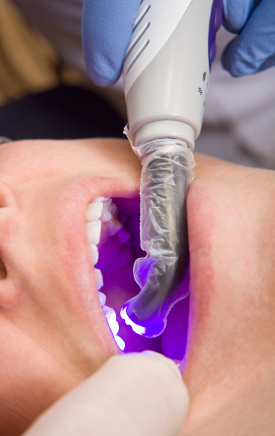 Parents tell their children not to eat too many sweets or they will get cavities. They will tell their child to brush their teeth after a meal of the same reasons. These are the things that their parents taught them, and they are passing them along. But do they really know what they are teaching their children?
Parents tell their children not to eat too many sweets or they will get cavities. They will tell their child to brush their teeth after a meal of the same reasons. These are the things that their parents taught them, and they are passing them along. But do they really know what they are teaching their children?
They are giving their children a basis for proper oral hygiene, but they may not know all that they need to. If they really what to see themselves and their children avoid getting cavities or fillings, they need to learn all the good oral hygiene practices.
Start with the Basics
The most basic part of good oral hygiene is brushing the teeth. It is not only important to brush the teeth, but it is also important to know how to do it and when to do it. The purpose of brushing the teeth is to remove the food and debris that gets on the surface of the teeth. That means it needs to be done at least twice a day after meals. Brushing the teeth with a mild toothpaste should take about 2 minutes. Brush all the teeth and the tongue every time.
Along with brushing, it is important to floss. Flossing removes the debris between the teeth that the brushing fails to get. Flossing should happen daily.
Some of the Extras
In addition to brushing and flossing, there are a few other things to do to avoid fillings. A balanced diet that provides the vitamins and minerals is important. Candy and other foods full of sugar do not usually have much value nutritionally and it is a good idea to limit them. A mouth rinse with fluoride is another good way to protect your teeth. Use this as instructed by our dental professionals.
One other thing people do not think about for their oral health is water. It is a good idea to drink fluoridated water to help avoid fillings. Not all bottled water contains fluoride and is not helpful for your oral health. Fluoridated water not only helps rinse the teeth and gums, but also protects the teeth from bacteria growth that leads to cavities and fillings.
Maintaining good oral hygiene practices is not difficult. It is a habit that you can learn at a young age. When you do practice these habits, you will avoid fillings.
For more information about what good oral hygiene, talk to the dental professionals at our office. Call today for a consultation.
